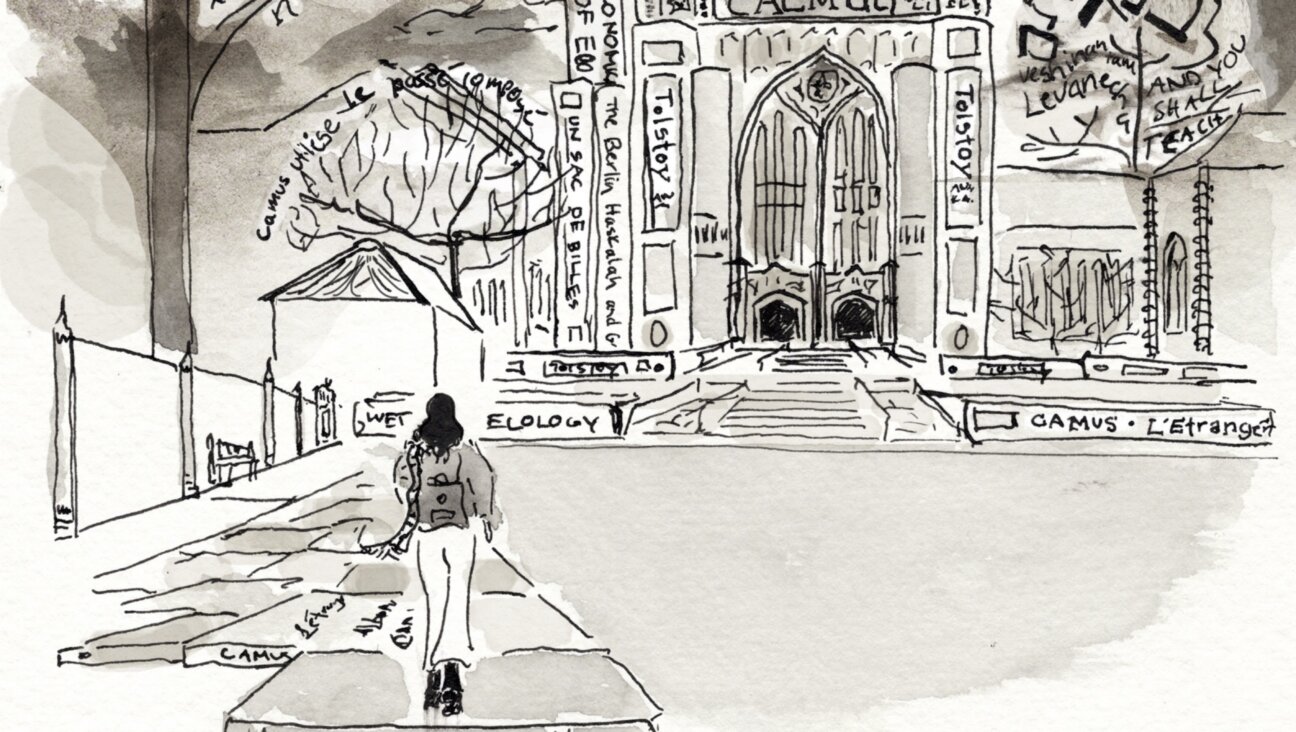Going From Egypt, Hoping for Elijah’s Coming
Among my favorite poems, there’s one called “Doubletake,” by Seamus Heaney, the Nobel laureate in literature in 1995. It includes a verse that reads, “History says, Don’t hope/on this side of the grave./But then, once in a lifetime/the longed for tidal wave/of justice can rise up,/and hope and history rhyme.”
That verse, so filled with hope, took my breath away the first time I heard it, and continues to dazzle me each time I read it. And it occurs to me that it has particular relevance to the Passover holiday we now approach.
I say that because Passover is, quintessentially, a holiday where hope and history rhyme.
As to the history, it is of that distinctive type that is both personal and communal: In every generation, all of us are to see ourselves as if we personally had been redeemed from slavery. All of us, each of us; it could have happened no other way, the laggards and the indolent urged on by the enthusiasts, the freedom marchers, on through the parted waters, on through two whole generations trudging across the desert. And so it is we taste maror, bitter herbs, early in the Seder ceremony, a sensory reminder of the bitterness we experienced as slaves of Pharaoh more than 3,300 years ago.
Yet our experience decisively rejects what Heaney tells us is history’s lesson: “Don’t hope on this side of the grave.” And that rejection, our endorsement of hope, is the preeminent message of the Seder — one might say, a message about going and a message about coming.
The going is the obvious message, the going out of Egypt, the great story of which we are reminded at every turn: “For I am the Lord your God who brought you out of the land of Egypt, out of the house of bondage.” So begin the Ten Commandments, so over and over, the tradition teaches, the same message is at the very heart of who we are, we ourselves, all of us, each of us.
The Exodus: That is the hope that is based on our going out, on that which we have already experienced. There is also the hope of what is to come, the hope we express when we sing, with longing, of Elijah’s coming, when we open the door that he may enter, the harbinger of the Messiah, may he come speedily in our day.
Hence we believe, as Heaney’s poem goes on to say, “that a further shore is reachable from here.”
Is this truly hope, or merely fantasy?
Here is a story of the Baal Shem Tov, the founder of Hasidism, a story my mother, herself an eighth-generation descendant of the Besht, told me:
It happened that a disciple of the Besht came one day to the master and said: “I don’t understand. Every year, we have a wonderful Seder, we do everything we have been instructed to do, and every year, we open the door for Elijah — and he never arrives. How can this be? I feel we are spurned.”
The Besht considered his disciple’s complaint, and then told him to load a wagon with food, wine, matzos and also clothes and gifts for the children, and travel to a certain hut in a nearby village and spend the first two days of Pesach with the destitute family that lived there; it was there that he would certainly see Elijah.
The Hasid followed the Besht’s instructions punctiliously, and the next morning he arrived at the dilapidated hut in the nearby village. He was greeted warmly, his gifts were accepted with tears of gratitude, and that night, the entire family — mother, father, five children, along with their surprise guest, celebrated Pesach together.
Yet when the door was opened for Elijah — no Elijah.
Bitterly disappointed, the Hasid returned to the Besht and told him what had happened — and, more important, what had not happened. The Besht explained that Elijah must have been delayed, but that at Pesach time next year, the Hasid would surely encounter him. So he must at the time of the holiday return to the hut, once again with a wagon filled with food and gifts — but this time, before knocking on the door, he must first eavesdrop on the goings-on within the hut.
The Hasid did as told, putting his ear to the door before knocking. He heard the mother’s lament: “We have no food for the holiday. Nothing. How can we celebrate?” And he heard the father’s reply: “Not to worry! Don’t you remember that last year, Elijah came with all that we needed, and gifts for the children as well? Have faith; he will surely come on time once more.”
So ends the story, save for its moral: Hillel taught, “Where there is no man, be thou a man.” The Besht, through this story, taught, “Where there is no Elijah, be thou Elijah.” Bring closer the redemption.
Why do we sing “Eliyahu Hanavi,” the song of yearning for Elijah, not only on Pesach but also at the conclusion of every Shabbat?
Because though we cannot know when the Messiah will come, we do know that he will not come on the Shabbat. So the Shabbat ends, and the week begins with the renewed hope that soon, soon, the prophet will arrive, redemption draw nigh.
But just to be on the safe side, best not to await the miracle. And if, as may be, we are too weak to bring on the great tidal wave of justice, we can at least make ripples happen, make ripples of justice spread. And who can say when the ripples will gather into a wave, and then another?
















